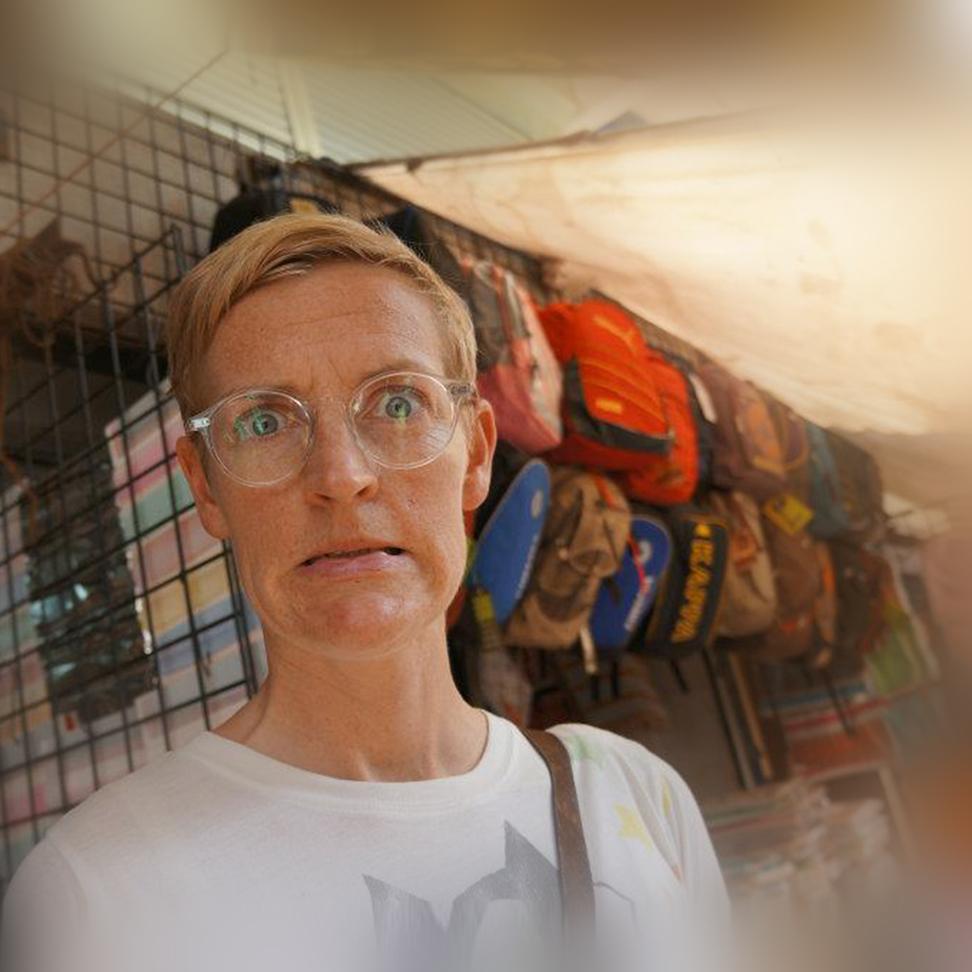Voluntourism has been around for a long time. It’s changed over the years, but essentially, the idea remains the same: help others while you’re traveling. Incredibly rewarding and eye-opening, voluntary work is well worth the time, money and effort. In most cases you’ll come away with a real sense of achievement, new friends and the knowledge that on this holiday, you did something different: you made the difference.
Also known as volunteer holidays, the concept is traditionally seen as the perfect filler for gap years (a year off before starting university). But volunteer opportunities can be taken at any time in the year, anytime in your life and virtually anywhere in the world.
What is voluntourism anyway?
Working with children – and making learning fun © Idex World
Voluntourism (an amalgamation of ‘volunteer’ and ‘tourism’), is the idea of doing good while you travel. It’s using your holiday as a volunteer opportunity; to go somewhere new (or familiar), and actively help out in whatever ways are needed.
It’s important to note that voluntourism shouldn’t be done on a whim or be seen as something to tick off your list; the primary focus of the experience should be the work itself and the results there of, not the enjoyment and gratification of the volunteer.
Typically, volunteer holidays are not funded; that is, you will have to raise a certain amount in order to go. These amounts vary a lot, and are dependent on where you’re going, what you’re doing and how long you’re doing it for. You’ll also have to pay for travel, accommodation and food – much like you would a normal holiday – the difference being, of course, that you meet up with a group of like-minded strangers and help a community, the environment, animals or with heritage conservation.
If you can’t afford the costs outright there are sites, like GoFundMe and FundMyTravel, which can help you with fundraising to meet your goal and get you on your way.
Why volunteer?
But why do it in the first place? There are many possible answers to this question: maybe you have an interest in a particular area which is impossible for you to pursue at home; maybe you’ve been to a country that you’re eager to return to; or maybe you want to pass the skills you have on to another person to help them, and the community, in the future.
Whatever the reason, the underlying but deciding appeal is that you can make a real difference in our world – and on the side, have an unforgettable experience that opens your eyes and quite possible changes your outlook on life.
How can you find ethical volunteer organizations?
See our list of ethical volunteer programmes and find out how you can help with sea turtle conservation © Idex World
One of the most important aspects of voluntourism is finding an ethical organization with ethical and sustainable volunteer programs. There are thousands of volunteer organizations out there, and, as with anything common, there are a few bad eggs in the mix.
Luckily, there are some simple points for finding an ethical organization. Once you’ve found a volunteer program you’re interested in, dig a little deeper than the initial description and website blurb. It’s not a lot of work (one or two emails is all it takes), and it will give you peace of mind that what you’re paying will be spent in the right ways, and what you’re doing will actually help the community or area in the long-term.
Below our tips, we’ve gathered some of our favorite programs to give you a head start on your volunteer journey.
Do they have local connections?
It’s important to make sure that what you’re doing won’t be taking jobs away from local communities. Consider if what you’re doing could or would be done by locals, and if the project supports and provides opportunities for the locals. If it’s not apparent on their site, ask if they could document how previous volunteers have helped and how this has helped the community (or area involved).
Is it sustainable?
Make sure the project is sustainable, that is: if the volunteers dried up, would the locals still be able to manage or have they become dependent on the volunteers? Volunteering and dependency is a tricky balance – make sure it’s there.
Do they have local support?
Look for price transparency. Where will your money go? How much of what you pay will go to the community? Some organizations will have have published their accounts online, but others won’t. They should, however, be happy to provide them if asked. If not, maybe they’re best avoided.
What are your volunteer opportunities?
Helping children with a good drink of water at a school in Argentina © Art of Backpacking
Volunteer work can be almost anywhere: from your home country to somewhere on the other side of the planet, and from a familiar culture to something completely alien. It’s important, however, to choose wisely – don’t just go for the cute factor. Make sure your skills can be used effectively, and wherever possible, taught.
Think about where you could actually have an impact – not just about where you’d like to see. Be sure that you’re actually able to do what the program requires, i.e. does the job require certain skills, e.g. bricklaying, a certain level of physical strength, and if not, find out if will you be given adequate training.
Volunteer teaching
- Teach on the beach, supporting local children with English language skills, in Koh Samui, Thailand
- Teach English to children and community members in sandy but tropical Costa Rica
- Help teach English to novice monks in Laos, and help develop the community
- Teach art to street children in Haiti to help give them tools for a brighter future
Volunteering with children
While very appealing, and while you might be suitably skilled for the project, volunteering with children – particularly in orphanages – is unfortunately one of the more corrupt areas of volunteering. While they might seem like a great cause, and while you might be qualified for them, it can be psychologically disruptive for young children to have a constantly changing mix of people around them.
Worse still are the people who have cottoned on to the demand for orphanage work and create fake orphanages to cater for ‘orphanage tourist’ demand. You can read more about orphanage volunteering at Better Volunteering Better Care, and do bear in mind that both UNICEF and Save the Children are against short-term work in orphanages.
However, there do exist ethical programs:
- Provide personal and educational support for children in beautiful Nepal
- Teach sport and offer personal guidance to children in Malawi
- Coach sports to children in Ghana
- Volunteer with children at a global summer camp with CISV
Conservation volunteering
Getting your hands dirty on a volunteering programme © Thomas Wanhoff
- Explore the rainforest, coral reefs and beautiful beaches of Belize, as you monitor and collect data on native mammal, amphibian and bird species
- Be part of resurrecting the legacy of a Nobel Prize winner by clearing parkland around a Classicist style chapel in the Czech Republic
- Learn how to dive (or just improve your skills), as you help with whale shark, turtle and manta ray research in South Africa
- Help wildlife conservation at the Big5 Game Reserve, in Malawi, just 10 minutes from Victoria Falls
Volunteering with animals
Unfortunately, animals too fall prey to money-greedy organizations around the world. Fake sanctuaries abound, with animals being constantly mistreated only for volunteers to ‘rescue’ them. Whatever you do, if there are elephants where you are – don’t ride them.
- Help with sea turtle conservation, monitoring hatching and releasing babies, in Costa Rica
- Learn more about great white sharks in South Africa, and help with data collection and egg collection
- Assist with cheetah reintroduction in South Africa
- Help rescue dogs and cats in Thailand
Volunteer in communities
Helping communities through education in Nepal © Idex World
- Help local communities in Tanzania, with teaching, helping with HIV awareness projects, and helping elderly residents
- Take part in constructing and repairing water harvesting systems and agricultural initiatives in Fiji
- Help with community projects to help increase the rural health and education facilities, and live in a beautiful tropical village in Madagascar
- Contribute towards a community in Kerala, India, working on a range of projects, from educational to renovation
Ethical voluntourism organizations
All of the programs above come from the following organizations, all of which work towards providing ethical, sustainable and locally supported volunteer opportunities for volunteers. They are:
GVI
Working together with organizations such as Save the Children, The Red Cross, WWF, SANParks and The Jane Goodall Institute, award-winning GVI is able to offer volunteer programs that are both needed and ethical in their approach.
Grassroots Volunteering
Grassroots Volunteering provides a database of independent and ethical organizations all over the world. It was founded in 2011 as a way to decommodify the volunteerism industry, and encourage travelers to truly support and connect with the places they visit and love.
CISV
CISV is an international peace education charity who work to unite children and teenagers of the world. They run specific programs that require a certain length of commitment to ensure that a relationship can be built between child and volunteer. Not only does this benefit the children, but it’s also enormously rewarding for the volunteer. Find out more CISV and read about how momondo is sponsoring them.
STA
There are animal sanctuaries – for all kinds of animals – all over the world © Idex World
STA Travel is a worldwide travel company that offers a number of volunteer projects, from community to sport, and from animals to conservation. They have a strict policy when it comes to animal welfare, and work together with ABTA’s Global Welfare Guidance for Animals in Tourism and The Born Free Foundation.
The National Trust
The National Trust is a registered charity in the UK, and works with the International Trusts Organisation, which brings together more than sixty diverse heritage conservation organisations dedicated to preserving and sustaining our shared heritage.
Pod Volunteer
Pod Volunteer is a non-profit organization that arranges ethical and locally supported volunteer opportunities around the world. With their extremely transparent website, they offer handpicked programs that are sustainable, monitored and driven by the needs of the project, not the needs of themselves or demand of the volunteers.
ChildSafe
Learning-the-ABCs © Idex World
ChildSafe is a movement that works towards protecting children and youth around the world. They have a lengthy list of organizations which are members of their own ChildSafe Alliance; a database of ethical volunteer organisations in Cambodia, Thailand, Nepal, Philippines, Egypt, Kenya, Honduras, Vietnam and India, which all focus on children and/or youths.
While it might seem like a bit of a minefield, voluntourism can be done right in a few easy steps. Knowing that you’ve done the research, and being 100% sure that what you’re doing is really needed and won’t harm the community you’re actually trying to help, will enable you to fully enjoy the work – and your holiday.
Find a project you care about, a project that is both sustainable and realistic in terms of what you’re capable of, and one that truly benefits the community and you’re good to go.




